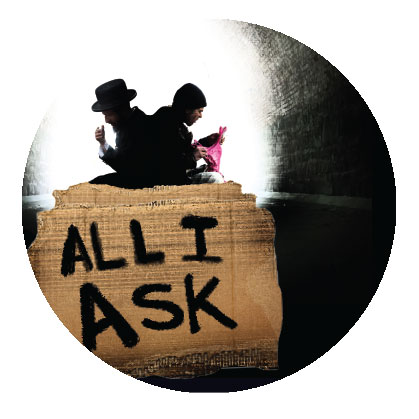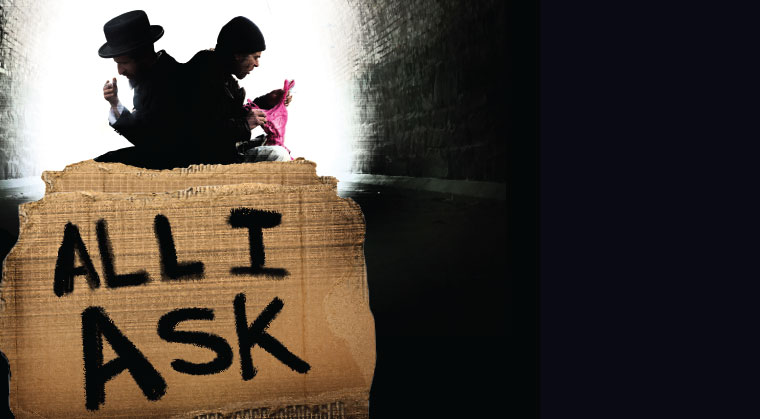All I Ask: Chapter 49

Yonatan leaned forward, focused and intense. “This Lulu — is he an older man, around 60, who goes around in a brown plaid shirt and a flat, shabby cap?”
"T

his is going to sound a bit stupid,” said Yonatan, rubbing his hands together awkwardly, “but do you happen to know any beggars?”
“Lots of them,” said Yanky evenly, wondering why Yonatan was asking. “They come through Zichron Moishe all the time.”
“Do you know any of them by name, and where they live?”
“Explain to me what you want,” said Yanky, “and I’ll help you if I can. You’re looking for a specific beggar?”
“Yes, that’s right,” Yonatan replied cautiously.
“Where did you first meet him?”
“He used to sit by the Central Bus Station, and he often bought falafel at the shop there. Mordechai’s Falafel.”
“There was a whole group of beggars that used to sit out there together,” said Yanky. “They lived in one of those abandoned buildings across from the bus station.”
“And where are they now? Do you know?” Yonatan was looking very eager.
“Well, they went their separate ways. Two of them left for Tel Aviv, and one of them… passed away. He had cirrhosis of the liver and died in the hospital.” Yanky’s voice shook as he recalled that night. “One of them is still on the streets here in Yerushalayim, camping out here and there. And the last one of the group isn’t a beggar anymore. He’s trying to rehabilitate himself. He’s renting a small apartment here in this area, and he’s working, trying to save up money.”
With a little smile, Yanky went on, “He has this dream of staying in a nice hotel, sort of a rite of passage to show that he’s made it. And after that he hopes to get married and have a family.”
“So this last one is a young person?”
“Pretty young. About your age, or mine.”
“The one I’m looking for isn’t young,” said Yonatan. He looked disappointed. After a pause, he said, “What about that one who died? What was his name?” Lulu, Lulu — say it was Lulu! Then this whole miserable story will be over, and I won’t have to go looking for my crazy uncle… although when I saw him in that old Russian man’s house, he didn’t look terminally ill… but still, you never know…
Oops! We could not locate your form.

